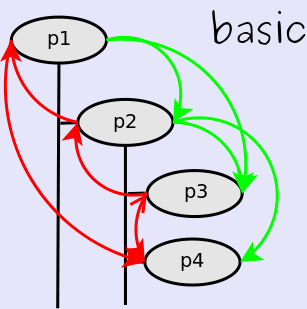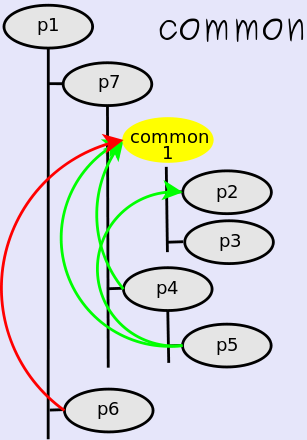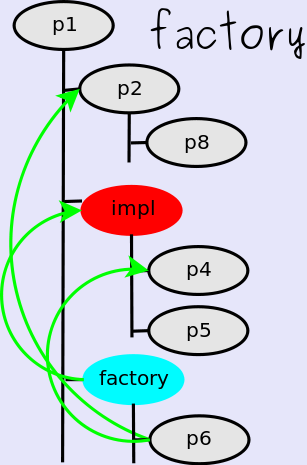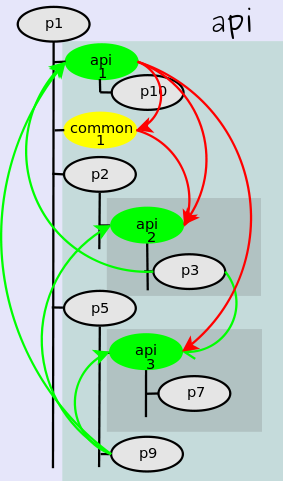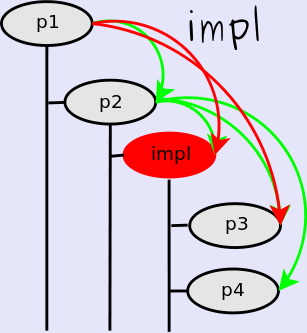CODERU rules
OverviewThe base idea behind the coderu is to organize the packages according to logical modules hierarchy. According to this structure the packages are allowed to access only other ones placed in its subpackages. This base structure is given by the basic rule. Hierarchy structure is best suitable to decompose the complex task into small ones, but less likely to provide service to other components. In order to correct that the common rule is in place and allows the access to a package from outside of its direct package hierarchy. The higher is a "common" package placed in the package hierarchy the more classes can access it and the fewer access rights have the classes in this package. Although it is possible to shape any acyclic classes graph according to the both rules above, api and factory rules exist in order to facilitate component oriented design. The impl rule facilitates component oriented design too and can be used for information hiding on any place. There are no restriction how coderu packages can be combined. You can for example have an IMPL below an API or vice versa. Recurcive Access
Basic RuleFor all packages without special semantic:
Common Rule
Factory Rule
API RuleAny package has access to any API with the following restrictions:
Additional restrictions:
Impl Rule
|
|
